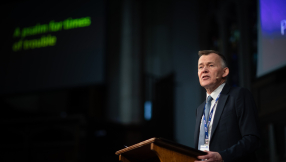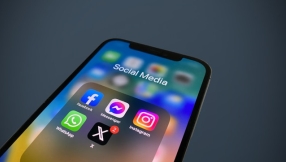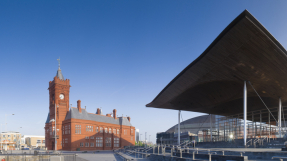
BBC Ouch's producer Damon Rose recently raised an interesting question: Why did Jesus heal? Damon gives different points of view on this from a diverse mixture of Christians. These views were picked up in various forums and rigorously, sometime ridiculously, debated.
As a disabled person, I've probably heard most beliefs on this: the healings in the new testament prove that God always heals, therefore it's my faith that is the problem. Or, this sort of healing died out with the Apostles. I disagree with both points.
There are many who believe Jesus healed only to validate His ministry or show Gods power – reducing disabled people to a pawn in a story of power. But there is far more to these stories than that. Yes, God's power was apparent in these healing accounts, but it isn't the sole reason for them. And no, disabled people are not a pawn in God's big story.
We have often been too quick in our assumptions, seeing the healing as the main narrative rather than a 'bit part' in a much larger theme of salvation, teaching and challenging of the religious leaders of the time.
When we look at the healing stories with 21st century Western eyes, we miss so much. We need to look again, taking into account the bigger picture as we re-read. The healing was a major thing in the life of the person who received it, but in the context of the whole story you will mostly find a much bigger and different theme.
When I teach the healing stories to children, I will acknowledge that the healing was amazing, but I will also point to what else Jesus was saying in the story.
This is because I'm often asked by disabled children about healing. I chat through many things with them, including "You are not a lesser Christian because of this."
I say this because the way we sometimes tell the healing stories can often give the impression these children are a project for fixing. But more worryingly, our misguided understanding of the stories also informs our often over the top response to modern day healings, making them the be all and end all of faith – over and above other key areas of faith.
Take a closer look at the healing by the pool of Bethesda. We often skip over the fact that there were many disabled people by the pool – and instead focus on the one who was healed. If this was about power, why not heal them all and make sure it was recounted in the writing of the story? If the healing was just about the faith of the man, why was it not mentioned in this story?
As we read, we see the healing was the catalyst to a much bigger story that challenged the religious leaders of the day. To these leaders, the healing was a small thing they skipped over as though it was normal. They were more bothered about healing on the Sabbath and Jesus referring to God as His Father. The healing was not the whole story. You can see all this just from a cursory reading of the chapter. This is not deep theology.
Following the BBC article, I've been asking questions and following discussion threads about the healing stories. Responses have been interesting. Some have been comments on the straight reading of the stories, others have been a little 'out there' and reading themes into the story that I really couldn't see.
Some where using a 21st century understanding of concepts and reactions within the stories to make a point, when a 1st century understanding would have been very different.
To be honest, I agree with a previous pastor of my church when he said, "The plain sense is the main sense."
Sometimes we try to over interpret the stories, such as the hole in the roof where the paralysed man was lowered through representing our hearts needing to be broken to be healed. It's not the plain sense – and spiritually speaking actually has nothing to do with the story!
Applying the plain sense approach and just reading the story from the chapter before it begins to the chapter after it ends will often give us a bigger story than healing.
There are usually no hidden meanings within the text, and when I hear people speak of hidden meanings, they are often influenced by that individual's personal understanding of the theology of healing.
To quote one comment I saw: sometimes we just need to "lighten up".
As you seek to make sense of the Bible, remember to keep the plain sense the main sense, and look at the wider story.
Kay Morgan-Gurr is Chair of Children Matter and Co-Founder of the Additional Needs Alliance, part of the Evangelical Alliance Council. For more, www.kaymorgangurr.com and on Twitter @kaymorgan_gurr













